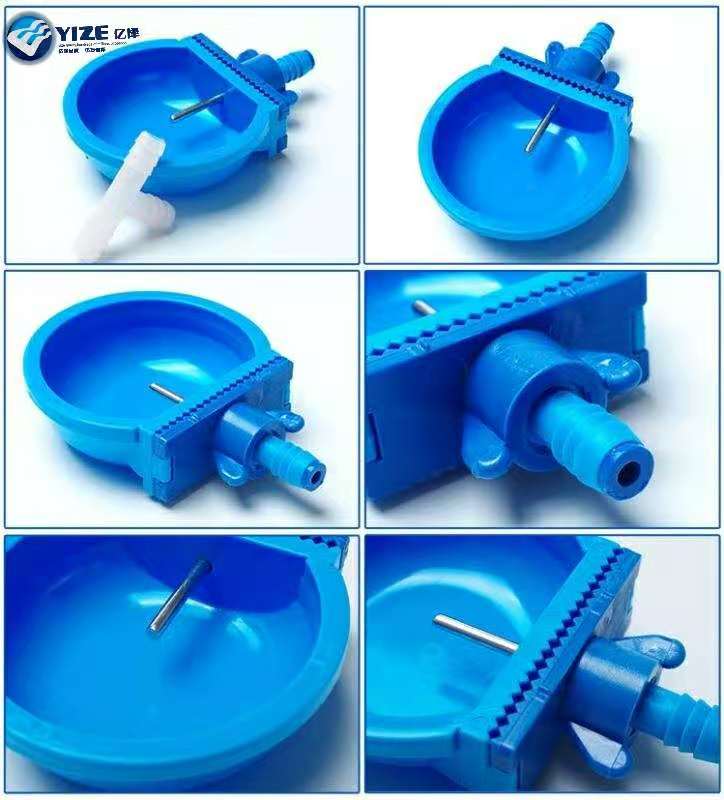Innovative Design and Functionality of Automatic Egg Tray Production Equipment
Dec . 09, 2024 22:31 Back to list
Innovative Design and Functionality of Automatic Egg Tray Production Equipment
The Egg Tray Machine A Sustainable Solution for Egg Packaging
In recent years, the demand for sustainable packaging solutions has surged, and one notable innovation in this field is the egg tray machine. This specialized equipment is designed to produce egg trays from recycled paper, providing an eco-friendly alternative to traditional plastic packaging. This article discusses the functioning, benefits, and future prospects of egg tray machines, emphasizing their role in promoting sustainability in the packaging industry.
Understanding the Egg Tray Machine
The egg tray machine is an advanced piece of machinery that converts waste paper into molded pulp products, specifically designed to protect and transport eggs. The production process typically involves several key steps pulping, molding, drying, and final shaping. Initially, waste paper, such as newspapers and cardboard, is collected and broken down into pulp. This pulp is then mixed with water and formed into the desired shape using molds. The molded trays are subsequently dried to ensure durability and strength.
The machinery comes in various capacities, catering to small-scale enterprises or large-scale production facilities. Modern egg tray machines are often automated, which enhances efficiency and reduces labor costs. Manufacturers can produce anywhere from 1,000 to 10,000 trays per hour, depending on the machine's specifications.
Environmental Benefits
One of the most significant advantages of egg tray machines is their positive impact on the environment. Traditional plastic egg packaging is not biodegradable and contributes to the accumulation of plastic waste in landfills and oceans. In contrast, egg trays made from molded pulp are fully compostable and biodegradable, making them a sustainable choice.
By utilizing recycled paper, egg tray machines help reduce deforestation and minimize the carbon footprint associated with the production of new paper products. Furthermore, the process of converting waste paper into trays can significantly lessen the volume of waste that ends up in landfills, contributing to overall waste management efforts.
paper egg tray machine

Economic Advantages
Besides their environmental benefits, egg tray machines offer economic advantages to businesses. The cost of raw materials is relatively low, as waste paper can often be sourced inexpensively or even for free. Additionally, the production of egg trays does not require significant energy expenditures, making it a cost-effective venture for entrepreneurs.
Furthermore, the rise of the organic food movement has increased the demand for eco-friendly packaging options, positioning egg tray producers to tap into new markets. By investing in egg tray machines, businesses can enhance their brand image by promoting sustainability, appealing to environmentally conscious consumers.
Future Prospects
The future of egg tray machines looks promising. As consumers and businesses alike become more aware of the environmental impacts of packaging waste, the shift towards sustainable solutions is expected to continue. Advances in technology may lead to even more efficient production methods and higher quality molded pulp products.
Moreover, egg tray machines can be diversified to produce other types of molded pulp products, such as fruit trays, industrial packaging, and biodegradable tableware. This versatility opens new markets and opportunities for businesses that invest in this technology.
Conclusion
In summary, the egg tray machine represents a significant step forward in sustainable packaging solutions. By transforming waste paper into biodegradable egg trays, these machines contribute to environmental conservation while offering economic advantages to producers. As the demand for eco-friendly packaging continues to grow, the egg tray machine stands ready to play a crucial role in the future of the packaging industry. Investing in such technology not only benefits businesses but also fosters a more sustainable and environmentally friendly world.
-
Automatic Feeding Line System-Pan Feeder Nipple Drinker|Anping County Yize Metal Products Co., Ltd.
NewsJul.29,2025
-
Hot Sale 24 & 18 Door Rabbit Cages - Premium Breeding Solutions
NewsJul.25,2025
-
Automatic Feeding Line System Pan Feeder Nipple Drinker - Anping County Yize Metal Products Co., Ltd.
NewsJul.21,2025
-
Automatic Feeding Line System Pan Feeder Nipple Drinker - Anping County Yize Metal Products Co., Ltd.
NewsJul.21,2025
-
Automatic Feeding Line System - Anping Yize | Precision & Nipple
NewsJul.21,2025
-
Automatic Feeding Line System - Anping Yize | Precision & Nipple
NewsJul.21,2025






